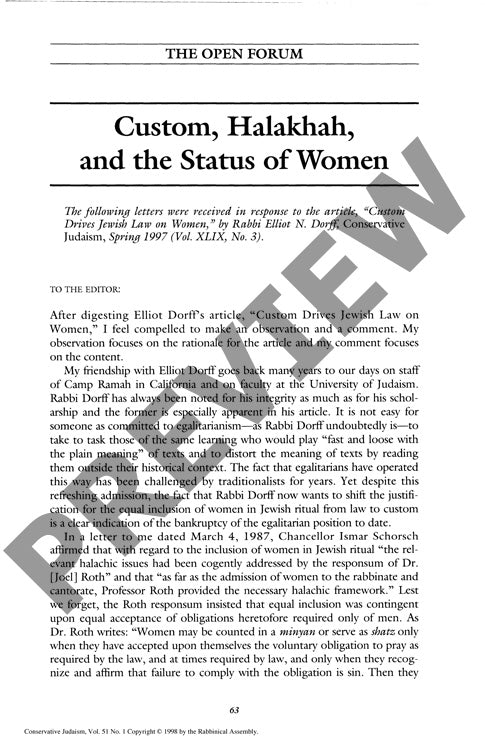Custom Halakhah and the Status of Women
Couldn't load pickup availability
This scholarly exchange examines the relationship between custom (minhag) and halakhah in determining women's status within Conservative Judaism. The discussion centers on Rabbi Elliot Dorff's proposition that custom, rather than formal Jewish law, has historically driven and should continue to guide decisions regarding women's liturgical and ritual participation. The methodology involves halakhic analysis, historical examination of rabbinic sources, and contemporary theological reflection. Critics argue that shifting justification from law to custom represents a retreat from previously established halakhic frameworks, particularly Joel Roth's responsum requiring equal obligations for equal participation. They contend that this approach undermines legal precedent and contradicts traditional sources that restrict women's ritual roles. Dorff responds by distinguishing between law and custom as normative categories, arguing that women's roles were originally determined by community practice rather than positive law. He advocates for a flexible approach allowing local communities and individuals to establish customs reflecting contemporary realities, while maintaining concern for Jewish unity in matters of personal status. The key findings suggest that this methodological shift reflects ongoing tensions between egalitarian aspirations and traditional halakhic authority within Conservative Judaism. The exchange demonstrates how contemporary movements navigate between historical precedent and social change, ultimately revealing fundamental questions about the sources and scope of Jewish religious authority in modern contexts.

More Information
-
Physical Description
-
Publication Information
Published 1998
ISBN
-
Publication Credits

